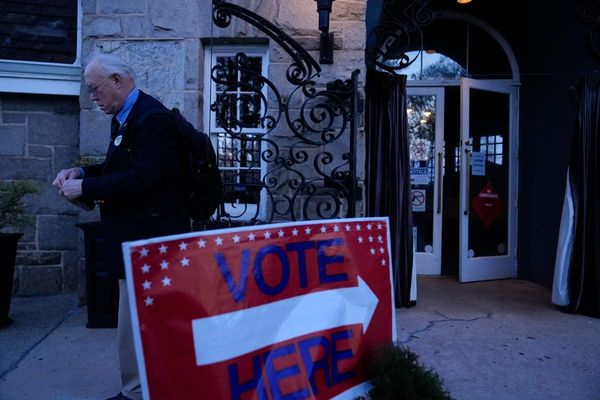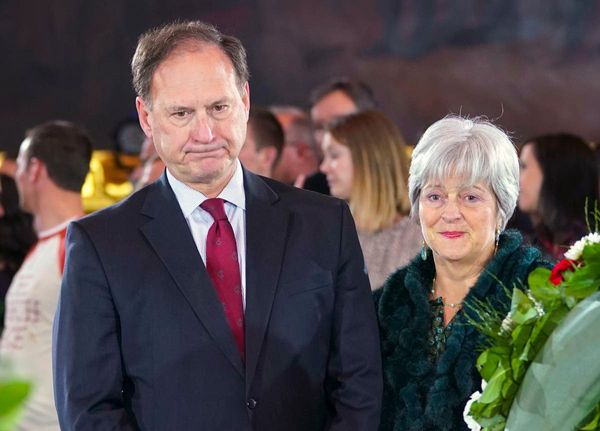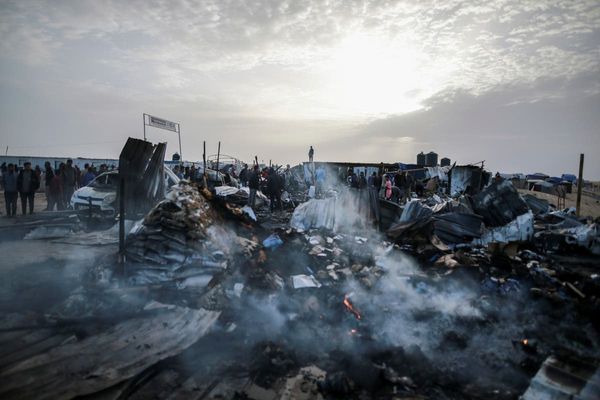Serious allegations have been aired during multiple inquiries into Australia's largest casino groups.
Crown Resorts was found in the Bergin inquiry to have facilitated money laundering and partnered with operators that had links to organised crime.
Star Entertainment was found in another inquiry to have let patrons use credit cards to move money for gambling out of China, disguising the payments as 'hotel expenses' and sending false documents to banks.
But no single staff member, executive or board director of either Crown Resorts or Star Entertainment has faced a civil or criminal sanction.
Corporate regulator the Australian Securities and Investments Commission (ASIC) and regulators in New South Wales, Victoria and Western Australia have not laid charges — and are unlikely to do so.
"It's really extraordinary that no individual has been held accountable," said Dr Charles Livingstone, one of the nation's foremost gambling researchers.
Dr Livingstone holds strong views about individual culpability.
"Clearly, individuals have been complicit in these companies' breaches of regulation, Australian law, state law and, in some cases, international law, and haven't been held to account.
"So it's hard to know what you would have to do to be held accountable"
Star facing licence deadline
Tomorrow is the deadline for Star Entertainment to demonstrate why it should not lose its lucrative licence to run Sydney's largest casino.
In the findings of his inquiry, Adam Bell SC didn't hold back, describing misconduct at The Star as "dysfunctional", "deceptive", and "brazenly misleading".
According to Mr Bell, The Star facilitated money laundering, ignored warnings about links to criminals, treated the gaming regulator with disdain and misled one of the big four banks.
Chief executive for the Alliance for Gambling Reform, Carol Bennett, is appalled by what looks like a lack of consequences for individuals at the companies.
"We want to see accountability when it comes to significant breaches of the regulations, and certainly criminal sanctions when there is criminal activity occurring in these venues," she says.
"I can't imagine another sector where we would see these kinds of breaches and criminal activity occurring where there would be no consequences. Absolutely none."
Explosive revelations by 60 Minutes and Four Corners woke up state governments that had slumbered through repeated warnings about the criminal infiltration of Australian casinos.
The extensive allegations led to two royal commissions and two inquiries in three states.
In Queensland, the Gotterson inquiry is currently examining Star casinos in Brisbane and Gold Coast.
The recent inquiries have found Crown Resorts unsuitable to operate casinos in NSW, Victoria and Western Australia. Under new ownership, Crown Resorts operates casinos in each of these states.
No charges have been brought
WA's regulator, the Gaming and Wagering Commission, is still reviewing the findings and recommendations of the Perth Casino Royal Commission. In a statement, it noted there will be no charges against individuals.
"The ... final report does not identify findings against individuals that at this stage contain sufficient evidence for prosecution to be mounted under the existing regulatory arrangements," it says.
In a statement, NSW Independent Casino Commission (NICC) chief commissioner Philip Crawford said new laws meant the commission could hit casino operators with fines of up to $100 million, 10 times the previous maximum.
But the legislation has a lot of caveats. It doesn't allow for "disciplinary penalties" to be dished out to former board members, staff or executives.
"There is no express provision in the act for disciplinary action to be taken against a former close associate," Mr Crawford said.
So, anyone in trouble needs to simply quit their job at the casino and the problem disappears, a fact that goes some way to explaining this statement from Mr Crawford:
"To date, no civil or criminal action has been taken against individual former directors or executives in relation to casino inquiries."
Victorian regulator's shortcoming exposed
The shortcomings of the regulator in Victoria — where Crown operates one of the largest casinos in the world — were exposed at its royal commission.
Managers at Crown Resorts misled, threatened and pushed back against Victoria's gaming regulator when it tried to get the company to tighten anti-money laundering protocols, at one stage even threatening to call the state's gaming minister, the inquiry heard.
The regulator was disbanded and replaced by the Victorian Gambling and Casino Control Commission. The VGCCC has already used its power to impose larger penalties, hitting the casino with a $80 million fine for a scheme that shifted money from China and broke both Chinese and Victorian laws.
Deputy chief executive Scott May said that under Victorian laws, staff, executives and board members of Crown need to be of "good repute, having regard to character, honesty and integrity".
He declined to point to a single individual or investigation, citing the need for strict confidentiality. But in his statement, he noted the same quirk of law that exists in NSW: quit your job and you're probably fine.
"During the course of our investigations there was significant change in key staff at the Melbourne casino, which resulted in resignations. Where this occurs, those persons are no longer associated with the casino, surrender their casino special employee licences and cannot be associated with the casino."
If those staff wanted to be re-employed by the new owners they would need to be approved by the regulator with "rigorous probity assessments which would consider any information concerning the person identified during previous inquiries".
ASIC investigating
In a statement, the corporate watchdog ASIC confirmed an investigation into The Star and its board commenced in March 2022.
"ASIC has been closely following the inquiry into The Star as well as carefully considering the evidence before it, its findings and The Star’s response to those findings. ASIC’s investigation into The Star continues, and therefore ASIC will not be commenting further on this matter at this time," the statement said.
In March, the regulator's chair Joe Longo said dropping charges against 10 unnamed former Crown directors and senior executives was the "right call".
“I think we made the right call on Crown,” he told a meeting of governance experts, reported in the Australian Financial Review.
“The evidence, the age of the matter, the knowledge of the directors at the time and in all the circumstances there wasn’t an actionable case against the directors."
Casino bigwigs in court
That's not to say that associates of casinos haven't seen the inside of court rooms.
Corporate watchdog ASIC wanted Crown director Harold Mitchell fined and banned from being a company director after it accused him of breaching his director's duties and other offences under the Corporations Act during a negotiation for broadcast rights for Tennis Australia.
But in the 2020 civil penalty proceedings, Justice Jonathan Beach found for the media mogul and philanthropist, except on one point of contravening the Corporations Act.
A year earlier, Crown director and former AFL boss Andrew Demetriou was grilled in court over the $145 million collapse of education group Acquire Learning, where he was executive chairman of an advisory board.
This year, Nine newspapers reported he would pay $360,000 to settle claims against him worth $45 million in relation to the collapse.
AUSTRAC threat lingers
While other bodies such as state-based police forces may take action against individuals, gambling regulation experts view this as unlikely.
The only real prospect of danger for any casino associates who are alleged to have facilitated money-laundering is financial crimes agency AUSTRAC.
The body works to stop criminal groups from "washing" ill-gotten gains to look like legitimate earnings, and to prevent the financing of terrorist groups.
In 2018, the Commonwealth Bank was hit with a $700 million fine for money laundering reporting breaches.
That was topped in 2020 by a mammoth $1.3 billion fine for Westpac after more than 23 million breaches of anti-money laundering laws, including facilitating hundreds of customers whose money transfer behaviour exhibited tell-tale signs of engaging in overseas child exploitation.
AUSTRAC is investigating SkyCity Adelaide and the Star Group, and in March it launched Federal Court proceedings against Crown Melbourne and Crown Perth.
The civil penalty proceedings are over "alleged serious and systemic non-compliance" with Australia’s anti-money laundering and counter-terrorism financing (AML/CTF) laws.
AUSTRAC boss Nicole Rose said Crown failed to meet its obligations, saying that made it and Australia’s financial system vulnerable to criminal exploitation.
“AUSTRAC’s investigation identified poor governance, risk management and failures," she said.
So far, no individuals have faced prosecution over the failings.
Coonan accused of re-writing history
The most substantial penalty has been paid by staff who have stepped down or resigned from executive roles and board positions. There has been extensive turnover at both Crown and Star. Crown has new owners and is no longer listed on the stock exchange.
Former Crown Resorts chair and Howard government minister Helen Coonan spoke to The Australian earlier this year, appearing to be seeking to vindicate her position.
"I paid my dues," she told Tansy Harcourt, explaining the tumultuous period.
"The easiest thing for me to do would have been to walk away and not take on the whole remediation of Crown, which was a super serious experience, but I had the courage of my convictions".
Ms Coonan was on the board for a decade, was chair of the board and took over the role of chief executive in early 2021 after then-CEO Ken Barton stepped down when the Bergin Inquiry found the company was "unsuitable" to have a casino licence in New South Wales.
Ms Coonan had conceded in her evidence to the Bergin inquiry that Crown had facilitated money laundering, but put it down to “ineptitude".
The company was subject to the NSW inquiry and royal commissions in Victoria and Western Australia and multiple takeover bids, at the same time as dealing with the building of its Sydney casino and the COVID pandemic.
"Nobody remembers who the individuals are out there, day after day, trying to bail water out of a difficult vessel," Ms Coonan said.
In the article, this interpretation was described by an unnamed board member as farcical.
"It's about being revisionist and that's just bullshit … being on the board as long as she was, makes her part of the problem."
Ms Coonan denied that in the article.
“This was a board where information was withheld by senior management on material matters – and you can’t know what you don’t know,” she said.







